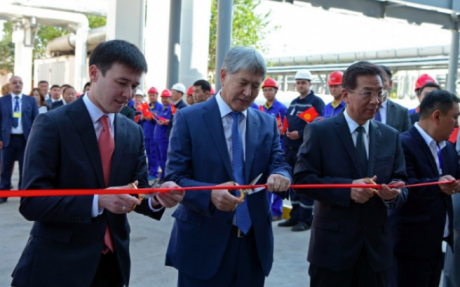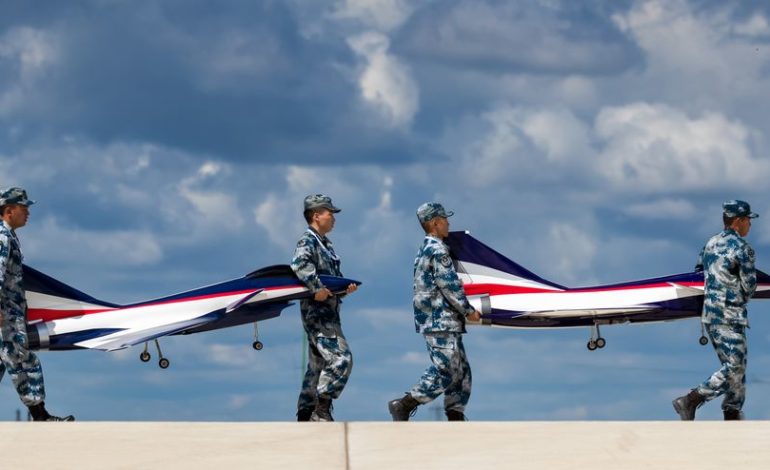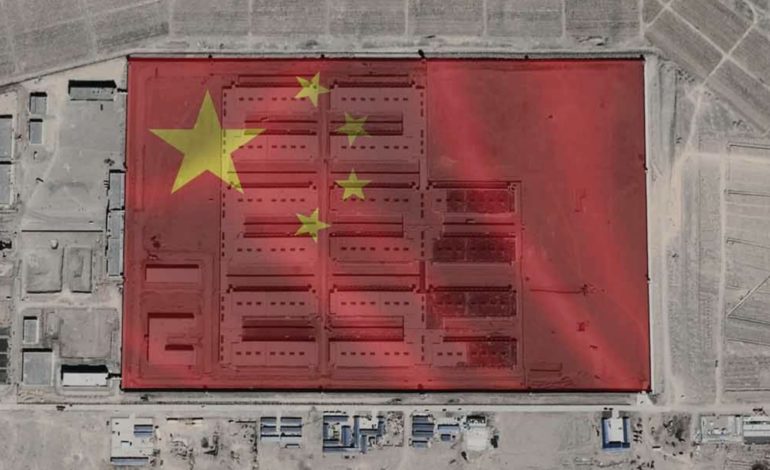
Abuse of power? On the trail of China’s mystery millions in Kyrgyzstan
By Elnura Alkanova
24 October 2018
For over six months, Kyrgyzstan has been mired in a high-level corruption scandal: a disastrous $386 million project to rebuild Bishkek’s Power Plant, funded by Chinese state funds.
Before leaving his post as president of Kyrgyzstan, Almazbek Atambayev carried out the ceremonial opening of Bishkek’s rebuilt Combined Heat and Power plant (CHP) in August 2017. The four-year modernisation of the city’s only source of heat for over half a century was initiated by the ex-president, and cost $386 million, which was borrowed from the Chinese government on credit. The contractor chosen for the project was also Chinese, Tebian Electric Apparatus Stock Co LTD (ТBЕА), which built two new boiler units, each with an emission capacity of 150 megawatts (MW) of power and 150 gigacalories of heat. In the course of the ceremony, Atambayev referred to those who claimed that he hadn’t built a thing during his six years in power as “dimwits” and “blind”: “Today, we bow to no one. We can cut off ‘certain countries’ lights at New Year. Energy specialists will understand what I’m saying.”
However, several months later it was the residents of Bishkek who were left without heating. On 26 January 2018, during a period of unusually hard frosts, an accident at the CHP plant led to a four-day breakdown of its heating system. Kyrgyzstan’s freezing MPs kicked up a stink, demanded that the culprits be put behind bars and took themselves en masse to the CHP plant to discover why the boilers had packed up. The then Prime Minister Sapar Isakov fired a series of officials and rank and file specialists, on the grounds that they hadn’t made the necessary preparations for winter.
After the power plant’s director Nurlan Omurkul uulu was fired from his job, he stated that the cause of the accident wasn’t any carelessness on the part of the specialists, but the siphoning off of funds allocated to the rebuilding project. According to Omurkul uulu, the real cost of the modernisation wasn’t $386 million, but $100 million less. “About 90% of the necessary materials and equipment were bought at an elevated price,” Omurkul uulu told a press conference.
At the time of the scandal, copies of purchase receipts for various items of expenditure appeared on social media, showing that TBEA, the Chinese contractors, were buying fire extinguishers at $1600 each and pliers at $320, as well as spending $6 million on consultancy fees and $14 million on administrative expenses. The press office of Power Stations, the company that runs the CHP plant, did not deny the accuracy of these figures and called the cost of the project “reasonable”.
Meanwhile, after three months of investigation, the Provisional Parliamentary Deputies’ Commission produced a 35 page report (Open Democracy holds a copy) on the scandal. Its main finding was that the contract with TBEA was concluded on disadvantageous terms for the country, and its conclusion covered in detail the causes of the accident and the losses incurred through the credit arrangements. Kyrgyzstan received a loan at 2% per annum over 20 years, but also has had to pay commission on the management of the loan at 0.18%. Its total repayment cost comes to almost $470 million.
The conclusion notes that since 1961, the Bishkek CHP plant has had 24 boiler units with 11 turbines producing 512 megawatts (MW) of power and 994.2 Gigacalories (Gcal) of heat. The units use only demineralised water produced by a special plant. Over time, a large part of the CHP plant has deteriorated, and eight of the boilers have been decommissioned and demolished. TBEA has meanwhile built two new, more efficient replacement boilers and a similar number of turbines, each capable of producing 812 MW of power and 1294.2 Gcal of heat.
Looking at the copy of the contract concluded between Power Stations and TBEA (a copy of which is held by Open Democracy), it becomes clear that the Chinese company was supposed to build a new chemical plant to produce the demineralised water for the updated boiler units. On the day of the accident, there were nine boilers in operation at the CHP plant, but six of them had to shut down for lack of water. Plant staff began refilling them by hand, but it takes two and a half hours to get one unit back in operation. And while the workers were trying to reboot the system bit by bit, the water stood motionless. Eventually, the 30-degree frost turned half of the plant into an ice rink.
A record number of arrestees
The Kyrgyz parliamentarians investigating the accident agree that Bishkek needed its CHP plant to be modernised. According to Commission member Iskhak Masaliyev, since the modernisation, 50% of the CHP plant’s fuel has been local coal, meaning that Kyrgyzstan is buying 50% less Kazakh coal, and thus stimulating the local economy. The energy production should theoretically be higher by another 300 megawatts, but Masaliyev tells me that the real problem lies in the exorbitant cost of the project.
The contractors didn’t complete the work: a new chemical plant was also planned, but for some unknown reason the Power Stations company was in a hurry to have the new CHP plant operational by August 2017 and signed off the incomplete reconstruction earlier than expected. “It’s clear that there’s an element of corruption at work here,” says Masaliyev. “It’s all to do with the increase in prices for the services, labour and materials used in the reconstruction process.We therefore ordered the law enforcement agencies and National Audit Office to study the implementation of the project in detail and bring the officials involved in it to justice.”
In early June 2018, after the publication of the parliamentary report, ex-PM Sapar Isakov, ex-mayor of Bishkek Kubanychbek Kulmatov, MP Osmonbek Artykbayev, ex-PM Jantoro Satybaldiyev, the former director of Power Stations Salaydin Avazov, as well as a representative of the Chinese contractor and other people implicated in the scandal – 30 people in all – were remanded at Kyrgyzstan’s National Security Committee’s pre-trial custody facility.
According to the investigators, in 2013 Osmonbek Artykbayev, the then Minister of Energy and Industry, decided to conclude a disadvantageous contract with the Chinese firm TBEA on the conditions it offered. And neither his deputies nor the CEO of Power Stations “demanded the required techno-economic feasibility study and other documents”. The prosecutor’s office also notes that contractor was only chosen after President Atambayev instructed Artykbayev, in writing, to consider Sapar Isakov’s proposal to begin talks with TBEA on 24 May 2013. The investigators state that, during the tender process, Isakov and his second-in command wrote a note to the president advising him to instruct Kyrgyzstan’s Ministry of Energy to hold talks with TBEA over a reduction in the proposed cost.
The Kyrgyz government had to choose a contractor from among four companies, and TBEA won the bid. For the Prosecutor’s Office, Isakov’s actions while he was part of the presidential apparatus amount to lobbying for a foreign company. Isakov has been charged with corruption, and Jantoro Satybaldiyev, another former PM, is suspected of being complicit in his crime. Kubanychbek Kulmatov is also suspected, while mayor of Bishkek, of illegally using two million dollars of grant money allocated to the modernisation project to build two new schools.
Klara Sooronkulova, a former Constitutional Chamber judge, says that the participation of the presidential staff in choosing a contractor for the CHP project is unusual. “What have Sapar Isakov and Nursulu Akhmetova (head of the presidential administration’s financial department) got to do with all this? The president’s office is an auxiliary body for the president, which facilitates his work. They were not supposed to interfere in the power plant contract and the sphere of responsibilities of the government. This is an abuse of their official position, a violation of constitutional principles and division of powers.”
Sapar Isakov does not agree with the accusations made against him, and called his arrest “lawlessness”. “Now I will work with my legal counsel closely and prove my innocence. But I will say that this is complete lawlessness. I’m in shock from all of this,” Isakov said to journalists immediately after his interrogation by the National Security Service on 29 May this year.
Ravshan Jeyenbekov, a former parliamentary deputy (no relation to the current President), tells me that the authorities are now busy trying to hang the entire blame on one man – former Kyrgyz energy minister Osmonbek Artykbayev. Jeyenbekov tells me that, according to government regulations, decisions on these kind of projects is always taken collectively. “Knowing this system, I can say that the minister (Artykbayev) is not the person to be blamed for everything and made the scapegoat. He is only a minor implementer of the will of the government. But in terms of this modernisation, he was also implementing the will of the president.”
At a parliamentary session on 17 May, Osmonbek Artykbayev stated that it was the people who implemented the project who were being accused of wrongdoing, rather than those who took decisions. “But I believe that the investigation and other authorities will clarify and define who made this decision, and come to a conclusion. Sapar Dzhumakadyrovych (Isakov) says that he merely handed on information. But there was a request there: give this task to the Minister of Energy, Minister of Finances, Minister of Foreign Affairs and other ministers, let them implement this. The ministers carried out their work on this basis.”


